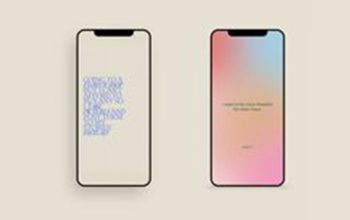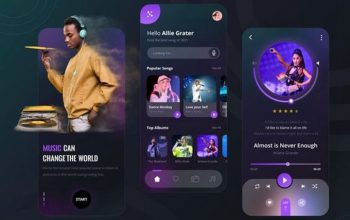When folks elevate extra questions on Fb’s impression on the world, and the way it makes use of folks’s private information insights to primarily amplify their fears and worries to drive participation, the corporate additionally proposes that we are going to do extra It appears a bit unusual that Fb integrates into extra features of our every day lives with the intention to obtain a greater future.
- Table of Contents
- Facebook watch
- android ranking service
- google play keywords tool
- buy keyword installs
That, on the floor, doesn’t seem to be essentially the most logical connection, however that’s the place we’re at, with new pictures being shared of Fb’s coming smartwatch challenge, which can technically be a Meta undertaking, not Fb. If that makes a lot distinction.
As you may see on this picture, which was positioned within the back-end code of Fb’s ‘View’ app for its Ray Ban Tales smartglasses, Fb’s smartwatch will look very very similar to an Apple Watch, with the addition of a front-facing digital camera on the principle display screen.
“The photograph exhibits a watch with a display screen and casing that’s barely curved on the edges. The front-facing digital camera – just like what you’d see on a smartphone – seems on the backside of the show, and there’s a management button for the watch on the appropriate aspect.”
That aligns with earlier descriptions of Fb’s smartwatch, with The Verge reporting again in June that the gadget will embody two cameras, and can allow customers to detach the watch face with the intention to take photos and movies on the go.
“A digital camera on the entrance of the watch show exists primarily for video calling, whereas a 1080p, auto-focus digital camera on the again can be utilized for capturing footage when indifferent from the chrome steel body on the wrist.”
The picture right here and the outline match up, whereas the undertaking can also be anticipated to include Fb’s evolving analysis into translating muscle actions out of your wrist as a management device in digital environments.
Which Meta CEO Mark Zuckerberg was eager to indicate off in his Join presentation this week.
Which appears all good, all attention-grabbing, and positively a much less intrusive management gadget shall be wanted to maximise utilization of the corporate’s coming AR and VR instruments, as a result of folks gained’t need to be slipping on VR gloves each time they need to do considered one of these items.
However once more, there’s a query over whether or not Fb – or Meta – needs to be trusted on this respect, and that we should always consider that the corporate has discovered its classes from previous errors that can allow it to host a much more immersive, and in that respect, much more dangerous expertise for customers inside this new digital plain.
As a result of whereas Fb’s technological advances and shows look nice, and if it’s in a position to fulfill even many of the promise that it’s proven, that can positively pique plenty of curiosity. Even so, as highlighted within the latest ‘Fb Information’ disclosures, Fb has main flaws in its methods, deliberately created or not, which can solely be much more harmful after they take up much more of your consideration and psychological area.
Take, for instance, the report that Instagram is dangerous for younger ladies – you’d must think about these harms can be amplified in a totally immersive social area. After all, Meta will attempt to re-angle this by selling using avatars as an alternative of your actual picture, which can reduce the private impacts of such course of. However will it? Individuals can nonetheless be focused for various causes, outdoors of bodily traits, and if that’s occurring in what’s envisaged to turn into your key social area, that’ll must have a extra vital impact.
A part of the priority on this respect is Fb’s enduring ‘glass half full’ perspective on its instruments, which tech journalist Kara Swisher highlighted in an interview with Intelligencer earlier this week:
“Once they have been debuting Fb Dwell, I had one million questions on abuse. They usually have been like, “What are you speaking about?” It was so typical. It wasn’t [Zuckerberg], nevertheless it was his folks – individuals who have been like him who simply replicate him. They have been like, “You’re such a bummer, Kara.” And I’m like, “Okay, I’m a bummer, I assume, however I feel somebody’s going to kill somebody on this factor and broadcast it.” And it didn’t take lengthy earlier than there was a mass homicide on it. The thought of penalties appears to flee them virtually totally as a result of most of them have by no means had an unsafe day of their lives.”
That is typical of many of the firm’s initiatives, with Fb’s workforce seeking to the wonderful advantages, whereas typically lacking the potential harms and impacts that might additionally come in consequence.
Zuckerberg himself mirrored the identical in a speech to Georgetown in 2019, during which he mentioned the corporate’s strategy to political expression, with respect to its determination to not take away feedback made by political leaders.
“I don’t suppose we have to lose our freedom of expression to appreciate how vital it’s. I feel folks perceive and respect the voice they’ve now. At some basic stage, I feel most individuals consider of their fellow folks too.”
Regardless of years of points with hate speech, abuse and misinformation, Zuckerberg nonetheless holds agency to this overarching perception, that persons are essentially good, and due to this fact giving them extra instruments to attach can solely even be an excellent factor.
Which we all know will not be universally the case, and that there does should be guard rails and measures to restrict misuse, with the intention to cease folks from manipulating such methods. Which Fb has been constructing over time, and should now be ready to implement extra successfully throughout the evolving metaverse area. However I wouldn’t guess on it, and I don’t know that I’d belief in Zuck and Co. to have thought by means of the complete repercussions of extra immersive engagement, given the platform’s historical past.
However that was Fb, that is Meta. Proper? The 2 are totally different, with the Meta branding opening up a brand new strategy.
And now Fb desires to be in your house, in your wrist, and overlaid onto your real-world perspective, and even changing into your entire interactive area, encapsulating extra of your day-to-day expertise, in increasingly more methods.
It appears nice, and Zuckerberg’s presentation of the way forward for connection appears prefer it has big potential. However is Fb actually able to facilitate this subsequent step?




